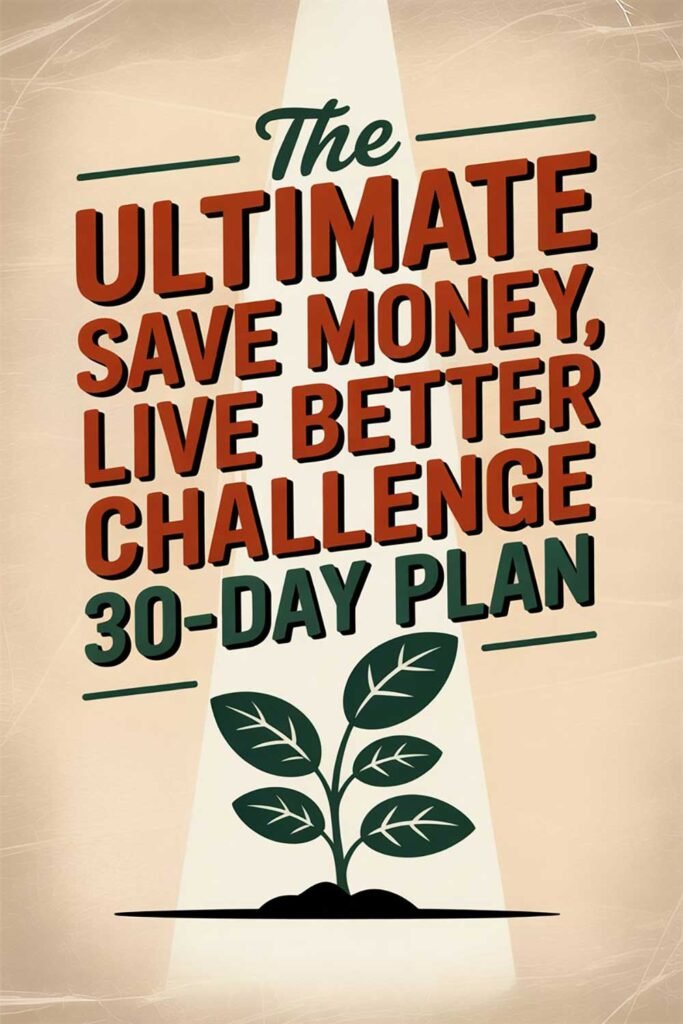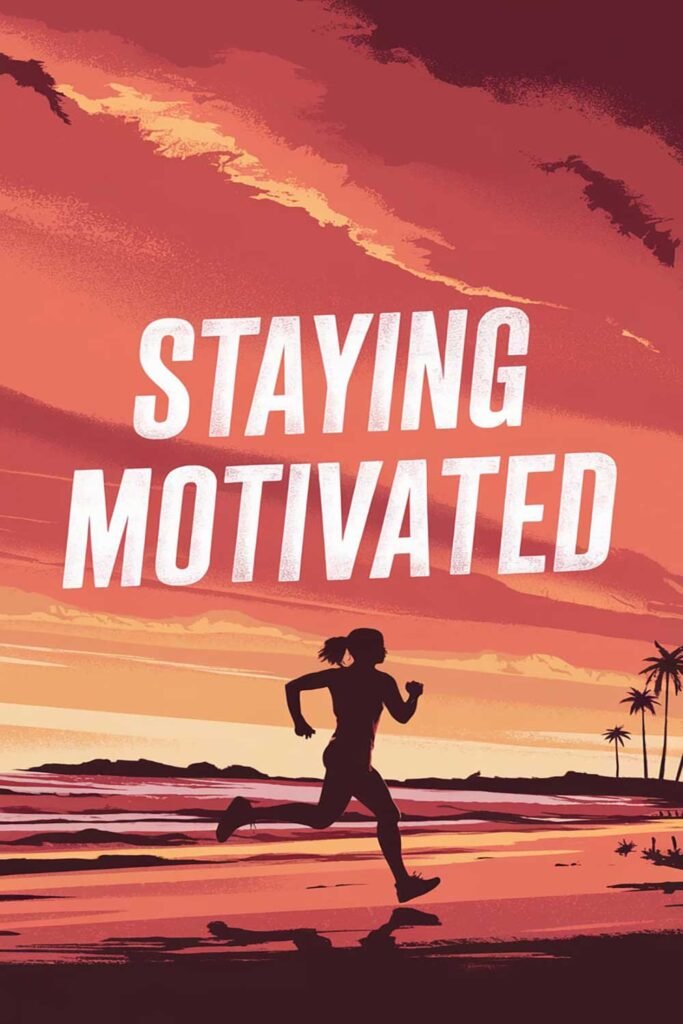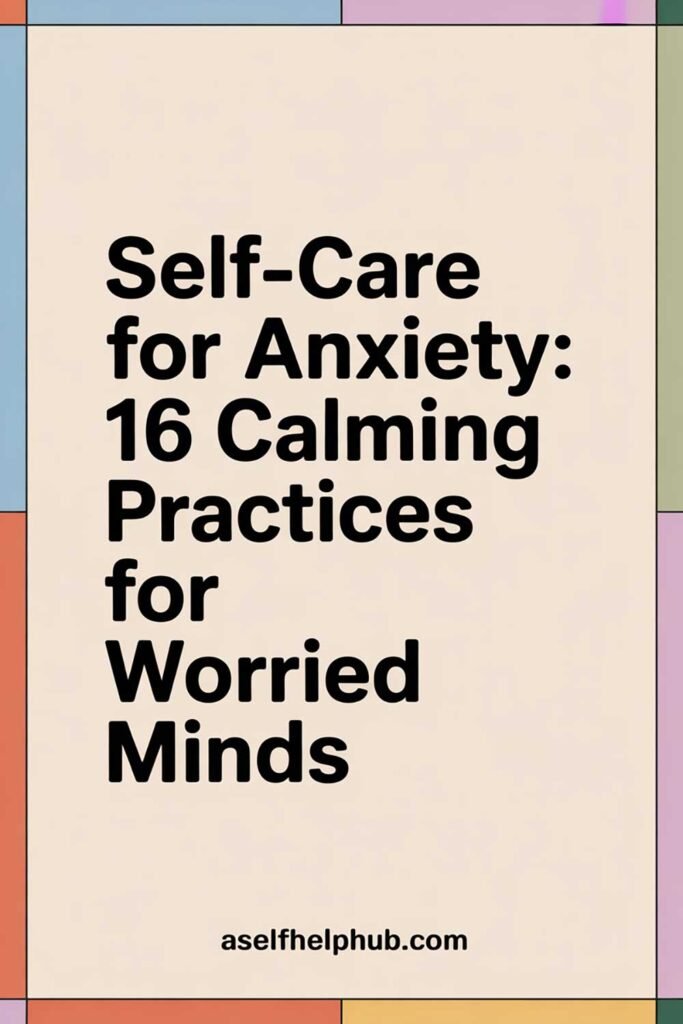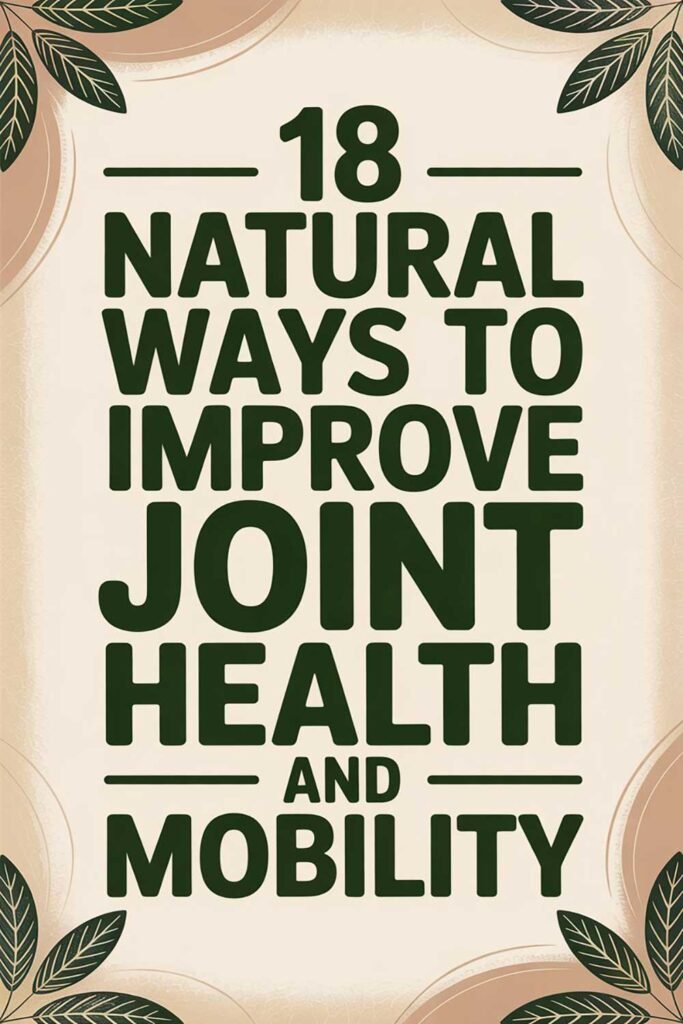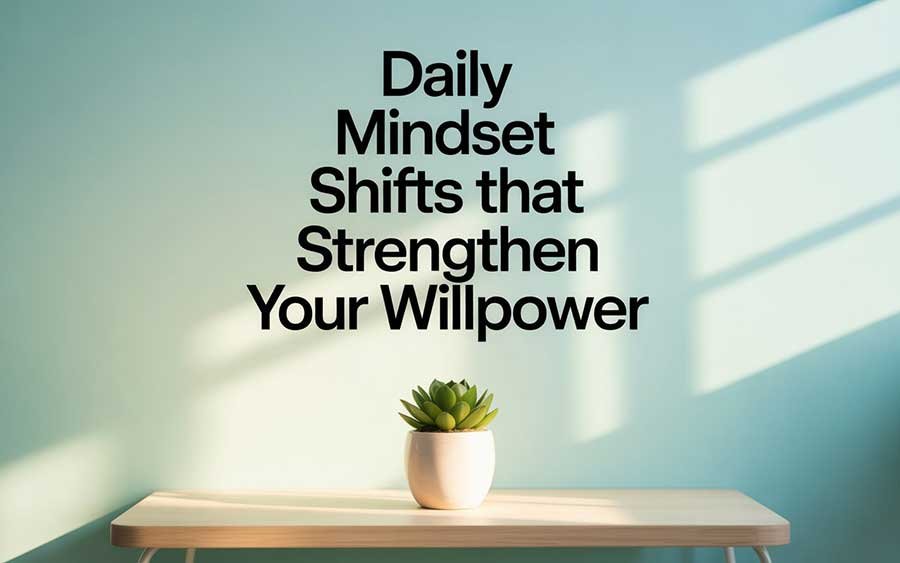
Unbreakable Resolve: Daily Mindset Shifts That Strengthen Your Willpower
Have you ever felt it? That surge of determination on a Monday morning, ready to tackle your goals, only to find it fizzle out by Wednesday afternoon? The grand plans for healthier eating, consistent exercise, focused work, or breaking a bad habit often crumble under the weight of temptation, procrastination, or sheer mental fatigue. It’s a universal struggle, and at its heart lies the often-misunderstood concept of willpower.

Many of us view willpower as a finite resource, a well that eventually runs dry, leaving us powerless against our urges. We beat ourselves up for “lacking” discipline, convinced that some people are simply born with an innate ability to resist temptation and stay on track. But what if that perspective is precisely what’s holding us back?
The truth is, willpower isn’t just about gritty determination or raw force of will. It’s profoundly influenced by our mindset – the underlying beliefs, attitudes, and perspectives we bring to our daily challenges. By consciously shifting how we think about willpower, ourselves, and our goals, we can transform it from a fragile commodity into an abundant, renewable energy source.
This isn’t just another article telling you to “just do it!” This is your definitive, deep-dive guide into the daily mindset shifts that strengthen your willpower. We’re talking actionable strategies, powerful reframing techniques, real-life transformations, and the kind of profound inspiration that will have you eager to cultivate an unbreakable resolve and unlock your fullest potential.
Beyond Brute Force: Why Mindset is the Master Key to Willpower
Before we dissect the specific shifts, let’s understand why our internal narrative and beliefs play such a pivotal role in our ability to exert self-control.
Imagine this scenario: You’re trying to quit sugar. Your old mindset says, “This is going to be so hard. I’ll probably fail. I have no self-control.” What happens when a tempting dessert appears? Your brain, already primed for failure and discomfort, screams, “See? I told you so! Just give in, it’s too difficult.” And usually, you do.
Now, imagine a different internal dialogue: “I’m choosing to nourish my body. This dessert is tempting, but my health goal is more important. I’m capable of making this choice.” Suddenly, the struggle isn’t about deprivation, but about alignment with a higher value. The power shifts from the external temptation to your internal resolve.
Mindset shifts are about altering this internal dialogue, reshaping your beliefs, and changing your relationship with challenges. They allow you to proactively engage with difficulties, rather than reactively succumb to them. They transform obstacles into opportunities for growth, and fleeting desires into fuel for your long-term vision. Think of them as upgrading your mental operating system for peak performance and unwavering discipline.
The Pillars of Unshakeable Willpower: A Comprehensive Approach
Let’s break down the core components of cultivating robust willpower. Each pillar supports the others, creating a powerful, synergistic system that works for you.
Pillar 1: Reframe Willpower as a Muscle, Not a Finite Resource
This is perhaps the most fundamental shift. The common belief is that willpower is like a battery – it drains with use and needs recharging. While mental fatigue is real, viewing willpower as only finite can become a self-fulfilling prophecy.
- The Shift: Instead of “My willpower is running out,” think “Every act of self-control is a rep that strengthens my willpower muscle.”
- The Practice:
- Start Small: Don’t try to overhaul everything at once. Pick one small, manageable habit to consistently practice self-control (e.g., getting up 15 minutes earlier, saying no to one specific snack, doing 10 push-ups).
- Acknowledge Successes: Every time you exert willpower, no matter how small, consciously acknowledge it. “I chose water instead of soda. That’s a win!” This positive reinforcement builds the “muscle.”
- Strategize Recovery, Not Depletion: Just like a muscle needs rest, your willpower needs recovery. This means prioritizing sleep, healthy nutrition, and stress reduction, which replenish mental energy, making it easier to exert self-control.
- Why this matters: This mindset empowers you. It turns every challenge into an opportunity for growth, fostering resilience rather than resignation.
- Real-Life Example: Sarah’s Morning Workout Renaissance Sarah used to dread her morning workouts. She’d often hit snooze, convinced she lacked the willpower. After learning about willpower as a muscle, she started with a tiny, non-negotiable win: simply putting on her workout clothes as soon as she woke up. “Some days, that’s all I did for a week,” she admits. “But then, I’d often think, ‘Well, I’m already dressed…’ and do 10 minutes. Slowly, I built up. I realized that putting on the clothes was a ‘rep’ for my willpower. Now, I consistently get my 45-minute workout in, and it feels less like a struggle and more like a routine I’ve earned.”
Pillar 2: Shift from “I Can’t” to “I Choose To”
The language we use profoundly impacts our perception of control and freedom. “I can’t” implies external constraint or a lack of ability, fostering a feeling of victimhood. “I choose to” asserts agency and aligns your actions with your values.
- The Shift: Instead of “I can’t eat that donut,” think “I choose not to eat that donut because I prioritize my health goals.”
- The Practice:
- Conscious Language: Pay attention to your internal and external language. Whenever you hear “I can’t,” rephrase it to “I choose not to,” “I prefer not to,” or “I am choosing to [positive alternative].”
- Connect to Values: Explicitly link your choices to your deeper values or goals. “I choose to save money so I can travel,” or “I choose to focus on this task because it moves me closer to my promotion.”
- Acknowledge the Trade-off: Understand that every choice involves a trade-off. Choosing one thing means saying no to another. Embracing this reality makes the “no” feel less like deprivation and more like a strategic decision.
- Why this matters: This simple linguistic shift imbues you with power. It moves you from a passive recipient of circumstances to an active agent in your own life, making willpower feel less like a struggle and more like a deliberate act of self-determination.
Pillar 3: Embrace Discomfort as a Signal for Growth, Not a Stop Sign
Our brains are wired to seek pleasure and avoid pain. This often leads us to shy away from discomfort, which is exactly where growth and willpower development happen. Productive people don’t avoid discomfort; they lean into it.
- The Shift: Instead of “This feels uncomfortable, I should stop,” think “This discomfort means I’m growing, I’m challenging myself, I’m getting stronger.”
- The Practice:
- The 5-Minute Rule: When faced with something you’re resisting, commit to doing it for just 5 minutes. Often, the inertia of starting is the hardest part, and once you begin, the discomfort subsides or becomes manageable.
- “Feeling the Burn” Mentality: Apply the concept of a physical workout’s “burn” to mental or emotional challenges. Recognize that the feeling of resistance, boredom, or frustration is a sign you’re pushing past your comfort zone, which is precisely what builds mental fortitude.
- Mindful Observation: When discomfort arises, instead of immediately reacting, pause. Observe the sensation. Name it. Remind yourself it’s temporary and a sign of progress.
- Why this matters: This shift transforms your relationship with challenges. Discomfort becomes a welcome indicator of progress rather than a deterrent, allowing you to persist where others would quit.
- Real-Life Example: Ben’s Procrastination Breakthrough Ben, a writer, constantly battled procrastination, especially with difficult articles. He used to associate the initial discomfort of staring at a blank page with “this is too hard, I’ll do it later.” He adopted the “discomfort as growth” mindset. “Now, when I feel that familiar anxiety or resistance, I tell myself, ‘Ah, there it is! That means I’m about to do something important.’ I commit to writing for just 10 minutes, even if it’s junk. More often than not, I get into flow, and the discomfort vanishes. It’s like a mental warm-up.” This mindset helped him meet more deadlines and reduce his stress.
Pillar 4: Cultivate Self-Compassion, Not Self-Criticism, After Setbacks
A common trap in willpower journeys is the “what the hell effect.” You slip up once (e.g., eat a piece of cake), and then internalize it as a complete failure, leading to a cascade of further lapses (“Well, I blew it anyway, might as well eat the whole cake!”). Harsh self-criticism erodes willpower, while self-compassion rebuilds it.
- The Shift: Instead of “I’m a failure, I have no willpower,” think “I made a mistake, but it’s one choice, not my entire identity. I can learn from this and get back on track.”
- The Practice:
- Acknowledge and Forgive: When you slip up, acknowledge the mistake without judgment. Forgive yourself, as you would a friend.
- Analyze, Don’t Dwell: Briefly assess why the slip-up occurred (e.g., tired, hungry, triggered). Learn from it without dwelling in guilt.
- Re-commit Immediately: Don’t wait for “tomorrow” or “Monday.” The next decision is your chance to get back on track. Make that next choice align with your goals.
- Positive Self-Talk: Replace negative self-talk with encouraging, supportive language. Treat yourself like your own best coach.
- Why this matters: Self-compassion is the antidote to the willpower depletion that comes from shame and guilt. It builds resilience, allowing you to bounce back quickly from setbacks and maintain momentum towards your goals.
Pillar 5: Connect Daily Actions to Your Deeper “Why” and Bigger Vision
Willpower often falters when the immediate gratification of a temptation outweighs the abstract, distant reward of a long-term goal. Highly disciplined individuals constantly link their current actions to their ultimate purpose.
- The Shift: Instead of “I don’t feel like doing this now,” think “This small action today is a vital step towards the future I’m building.”
- The Practice:
- Define Your “Why”: Clearly articulate your compelling reasons for pursuing your goals. Write them down. Visualize them. Why do you really want to achieve this?
- Visual Reminders: Place visual cues around your environment (vision boards, sticky notes, phone wallpapers) that remind you of your “why” and your long-term goals.
- Future Self Visualization: Spend time each day visualizing your future self who has achieved your goals. How do they feel? What are they doing? Connect this feeling to your current actions.
- Micro-Progress Celebration: Break down large goals into small, achievable steps. Celebrate the completion of each step, reinforcing the connection between effort and progress.
- Why this matters: A strong “why” provides unwavering motivation. When you connect mundane or difficult daily tasks to a deeply meaningful future, willpower becomes less about resistance and more about purposeful action.
Real-Life Transformations: How Mindset Shifts Forged Stronger Willpower
The theory is powerful, but let’s see how these mindset shifts play out in the lives of real people.
- Liam’s Fitness Journey: Liam had always struggled with consistency in exercise. He’d start strong, then miss a day, then a week, spiraling into self-criticism. He implemented the “willpower as a muscle” and “self-compassion” shifts. “Instead of beating myself up for missing a run,” Liam explains, “I’d acknowledge, ‘Okay, I missed one. That’s fine. Now, what’s the very next right step?’ Sometimes it was just doing 10 push-ups at home, but it stopped the ‘what the hell’ effect. I also started seeing every single workout as a ‘rep’ for my mental strength. That small mental reframe made consistency possible for the first time in my life.” Liam now runs marathons.
- Chloe’s Creative Breakthrough: Chloe, a novelist, frequently got stuck in “writer’s block,” which she perceived as a sign of her inadequacy. This led to procrastination and immense guilt. She embraced “discomfort as growth” and the “I choose to” mindset. “When I felt that resistance to write, instead of thinking ‘I can’t do this,’ I’d say, ‘I choose to sit down for 30 minutes and write, even if it’s terrible. This feeling of stuckness means I’m on the verge of a breakthrough.'” She started writing her daily pages consistently, often pushing through initial discomfort to find her flow. “It was like unlocking a new level of my own potential,” she shares, “and it helped me finish my first novel.”
- The Chen Family’s Financial Discipline: The Chen family had ambitious savings goals but often struggled with impulse spending. They defined their deep “why” – early retirement and travel – and created visual reminders. They also practiced the “I choose to” language whenever facing a spending temptation. “Instead of ‘We can’t buy that new gadget,’ it became ‘We choose to save this money for our dream trip to Japan,'” Mr. Chen recounts. “That shift made it feel like an empowering decision, not a deprivation. Even when one of us slipped up, we’d practice self-compassion, learn from it, and immediately realign. Our savings rate soared.”
These stories underscore a vital truth: willpower isn’t something you either have or don’t. It’s a skill you cultivate, day by day, by consciously shaping your internal landscape.
Picture This…
Imagine waking up each morning with a clear sense of purpose, your inner voice cheering you on rather than dragging you down. When faced with temptation or procrastination, you no longer feel helpless; instead, you calmly assess the situation, connect it to your deepest values, and make a conscious, empowered choice. Your goals, once distant mountains, now seem like reachable peaks, steadily conquered by your consistent, deliberate actions. You feel a profound sense of self-mastery, a quiet confidence that comes from knowing you are the architect of your own destiny, fueled by an ever-strengthening, resilient willpower.
20 Quotes to Inspire Your Willpower Journey
- “Willpower is a muscle, and the more you train it, the stronger it will become.” – Kelly McGonigal
- “Discipline is choosing between what you want now and what you want most.” – Abraham Lincoln
- “The mind is everything. What you think you become.” – Buddha
- “You are the master of your destiny. You can influence, direct and control your own environment. You can make your life what you want it to be.” – Napoleon Hill
- “It is not because things are difficult that we do not dare; it is because we do not dare that they are difficult.” – Seneca
- “Motivation is what gets you started. Habit is what keeps you going.” – Jim Ryun
- “Self-control is strength. Calmness is mastery.” – James Allen
- “Small daily improvements are the key to long-term results.” – Unknown
- “The only discipline that lasts is self-discipline.” – Bum Phillips
- “Every day, in every way, I am getting better and better.” – Émile Coué
- “Your biggest challenge is not someone else. It’s the thousands of voices in your head telling you to quit.” – Unknown
- “The secret of change is to focus all of your energy, not on fighting the old, but on building the new.” – Socrates
- “Our greatest weakness lies in giving up. The most certain way to succeed is always to try just one more time.” – Thomas A. Edison
- “Willpower is the ability to do what you should do, when you should do it, whether you feel like it or not.” – Unknown
- “The greater the difficulty, the more glory in surmounting it.” – Molière
- “What the mind can conceive and believe, the mind can achieve.” – Napoleon Hill
- “The best way to predict the future is to create it.” – Peter Drucker
- “Discipline is the bridge between goals and accomplishment.” – Jim Rohn
- “The first step toward success is taken when you refuse to be a captive of the environment in which you first find yourself.” – Mark Caine
- “It’s not what we do once in a while that shapes our lives, but what we do consistently.” – Tony Robbins
Disclaimer
This article is intended for informational purposes only and is based on general knowledge, psychological principles, and common approaches to self-improvement. Individual results may vary, and personal experiences with willpower and discipline can differ significantly. It is always recommended to adapt these principles to your unique circumstances and, if experiencing significant struggles with self-control or mental health, to consult with a qualified professional such as a therapist, coach, or psychologist. This content should not be considered a substitute for professional psychological or medical advice.
Share This Article!
Did you find these insights valuable? Share this article with a friend, colleague, or on your personal networks! Let’s empower more people to cultivate unshakeable willpower and achieve their dreams.

